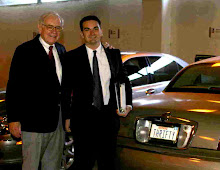Thoughts on the 2007 Chairman's Letter
The classic issue most interesting to me is his discussion of See’s Candies (see page 7). It lends support to an argument I made on this blog last spring that it is return on equity, or in some cases return on capital, that is the crucial ratio to the value investor. See’s exemplifies this perfectly, since it requires hardly any invested capital. As Mr. Buffett notes, See’s needs only $40 million to continue to operate, yet in 2007 the company earned pre-tax profits of $82 million. Since it was acquired in 1972, See’s has reinvested only $32 million to maintain its operational growth. The rest of its earnings, about $1 billion, has been deployed elsewhere. Earning huge returns on little capital investment is the definition of a good business. Yet investors rarely consider it.
Returns on capital are, in my opinion, horribly underrated by the investing public. Evidence of this can be found in the public’s fascination with companies like AT&T, GM or any airline. These are businesses that, while they may generate large earnings, do so only after investing large amounts of capital. Why not skip over these businesses whose hurdle is so high that only the most outstanding performance will yield the investor a decent return? That is what Berkshire has done over the years.
The contemporary issue that interests me is the one everyone has been talking about. Much has been and will be made of Berkshire’s derivative positions, but little was said in the letter about them. Personally I think Mr. Buffett is missing out on a see-I-told-you-so opportunity. It was in the 2002 letter that he, noting the role they played in LTCM’s implosion, warned derivatives were “financial weapons of mass destruction,” at which time he began to wind down the derivative business of the newly acquired General Re.
Since then I think he earned the right to boast a little about recognizing this fact but he did not in this year’s letter. For instance, this year he only mentions in passing the key aspect of Berkshire’s derivatives that set it apart from other companies drowning in credit-default swap failures and such. “In all cases we hold the money, which means that we have no counterparty risk,” he says. This is huge and deserves more attention. After all, it is the reckless and poorly capitalized bond insurers that have contributed the most to this mess.
The new bond insurance arm of Berkshire, Berkshire Hathaway Assurance Corp, was established in December which probably means the letter was already complete at that point. But I must assume the creation of BHAC had been planned for some time before that and thus it seems like a missed opportunity that Buffett doesn’t point out in the letter how well positioned Berkshire is to pick up where the MBIA’s and Ambac’s of the world failed. Especially with those companies’s refusal to grab Berkshire’s lifeline, I think responsible underwriting in this area will prove to be a big opportunity for Berkshire.


0 Comments:
Post a Comment
<< Home